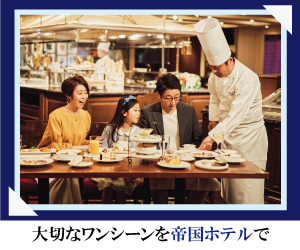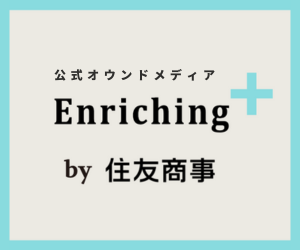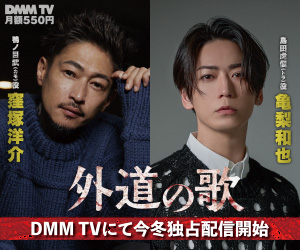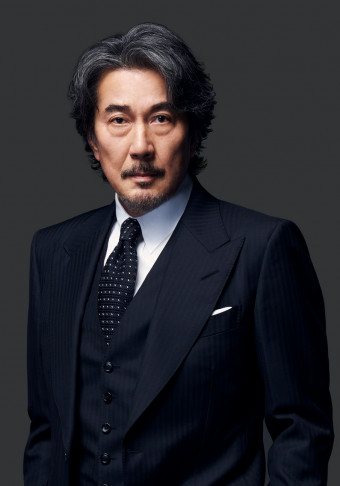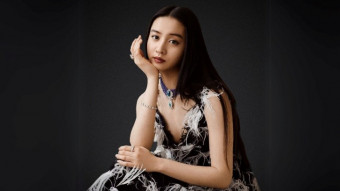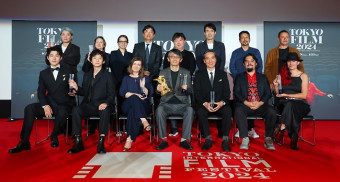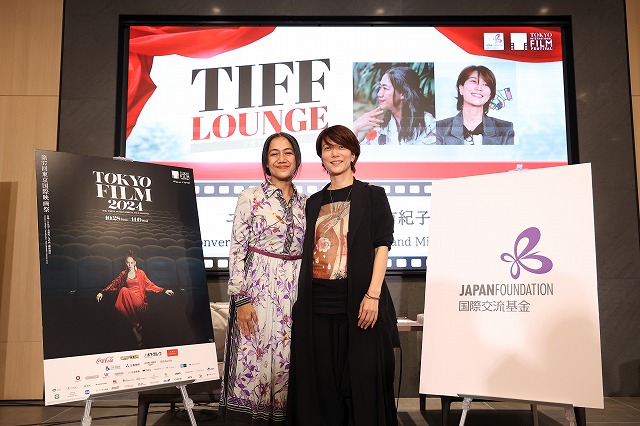
The final TIFF Lounge session featured its first female pairing: Indonesian director-producer Nia Dinata (Love for Share, Three Sassy Sisters) and Japanese director Mishima Yukiko (Shape of Red, Voice), who sat down together for a high-spirited chat at the 37th Tokyo International Film Festival on November 3, as part of the conversation series co-presented by The Japan Foundation and TIFF.
The session was moderated by TIFF’s Tanaka Fumihito, who told the audience that the women had each watched three of each other’s films and were looking forward to discussing the challenges involved in making them.
Dinata, who’s also serving on TIFF’s Asian Future section jury, is known for challenging the patriarchy and gender norms in her films, and has also produced acclaimed work such as Janji Joni (Joko Anwar, 2005), At Stake (Omnibus, 2008) and Madame X (Lucky Kuswandi, 2010).
It’s always nice to be in Tokyo; this is my fifth time here,” she told the audience. “I’ve been at TIFF with two films in the past and have also pitched a project at TIFFCOM. This time, I’m back as a jury member and it’s a real honor. I’m in the same generation as Yukiko (Mishima) and I felt, even before meeting her, that we share a connection.”
Concurring, Mishima noted, “In Indonesia, there are issues related to Muslims and polygamy, which we don’t really understand in Japan. But watching your films, I could definitely feel a connection. You must’ve gone through a lot of challenges to make [daring] films like these. Can you tell us a little about the background for making them?”
Dinata recalled, “In 2003, when I made Arisan! (The Gathering), with a gay character in it, I didn’t have that much trouble with censorship. Despite the government being very conservative, it was only 5 years since our 1998 political reform, and we were restricted because of politics, not because of religion. So it was surprising that the censorship board didn’t cut the kissing scenes.
“But by 2006, with Love for Share, there was a sex scene and I started receiving notes. I had to go to a meeting with the censorship board. And then with Three Sassy Sisters in 2016, it just didn’t pass censorship — not because of sex, but because the characters wore bikinis! So it’s getting more conservative. But after meeting with [the board] every week for 5 weeks, I finally got a 21+ rating.”
“That’s unthinkable in Japan,” said Mishima. “But I know there are countries with clear-cut rules. In Japan, the rules are ambiguous. It’s up to the filmmakers to self-censor themselves, which is kind of dangerous. Nowadays, freedom of expression is getting lost, especially in the world of social media. This is invisible pressure and sometimes I feel like I’m getting crushed by these invisible rules.”
After watching a trailer of the film, screened to give the audience a more clear idea of what Dinata was up against, Mishima said, “I would love to shoot a musical in Japan, but I’ve never managed to. Could I ask you how much your budget was [for Three Sassy Sisters]?”
“I’m not exactly sure,” said Dinata, “but it wasn’t more than $300,000. I’m quite independent, I have my own little film company. I always work with familiar crew members and I’ve never made a film for more than that amount.”
Then she hit on an idea: “How about if I produce your musical and you can shoot it in Indonesia?”
Before the women could begin laying plans for such an exciting possibility, Tanaka cued the trailer for Mishima’s newest film, Voice, about a young woman who returns home and grapples with the enduring effects of sexual abuse.
Dinata commented, “I love the cinematography in that film. And I loved the themes that I found in your films, especially in Red and Dear Étranger. I love Japanese film, but I rarely see a complex man as well as complex women. It’s also important for the audience to feel for the character played by Asano Tadanobu in Dear Étranger. When I write, I usually focus only on my female characters, and I really admire you for being able to do both.”
Thanking her, Mishima noted, “In Red, the protagonist is married and raising a child, before she meets an ex and looks inside herself, looks at her family and what she truly wants to have in her life. In Japan, people may think this is a theme from quite some time ago, because women have been free to work and/or get married for a long time. But I feel like men are always using women for their own benefit and I felt like I wanted to change something. That’s why I wanted to make the film.
“In Dear Etranger, it’s about divorce and remarriage, which we’re starting to see a lot in Japanese society. The theme is whether family bonds can exist without a blood relationship, which is still very important in Japan. If we drink the same water, can’t we be family? Since the Meiji Revolution, men have become stronger and the father is the most important figure in the family. I’d like to think that American culture influenced this and helped improve the situation. But still, even if many men try to be better fathers, there just aren’t enough father role models in Japan.”
Tanaka asked the directors to share their career trajectories, in essence suggesting they could be role models themselves.
Dinata explained that she studied films in New York and returned home in 1994, when she had no choice but to begin working in TV commercials because there was only one Indonesian film in the cinema that year. “But after the reform in 1998, we could start making films again,” she said. “My first project was a film for TV, a children’s film, and then I moved into feature films after that. I went to film school and my parents asked, ‘Why are you making films? There’s no film industry in Indonesia.’”
She talked about being in Jeddah, Saudi Arabia, as a youth, when her father worked there for an American bank, and said she would watch American films on video all the time at their library. Cinema became her passion and “that’s why I wanted to make it a career. The one film school in Jakarta in 1988, when I graduated from high school, was only for men, so that’s why I went overseas.”
Mishima recalled that she’d wanted to go to art college, but “when I told my father that I wanted to study film, he really opposed the idea. He told me that if I wanted to shoot a film, I should gain film literacy, that I should ‘dig shallow at first.’”
“In 1996 or 1997, I took my idea for a documentary about a nursing home in Indonesia to NHK, because everyone said it was the leading nursing home in the world. The person I talked to at NHK said, ‘Why don’t you take our entrance exam?’ So I entered NHK the next year and spent a month shooting in Jakarta. That became my graduation thesis.”
“So the message is, we have to be persistent!” said Dinata.
“Yes,” said Mishima. “We’re in our mid-50s and instead of thinking ‘this may not work,’ we think ‘how can I make this happen?’ Because we don’t have all that much time left.”
Dinata pointed out that whereas Mishima began in documentary filmmaking, she herself is now making a documentary for the first time. “I started feeling like I’m done with censorship, and I wanted to make a film about a long-running transgender show in Jogjakarta. There’s no censorship for documentaries. So that’s what I’m doing now.”
Mishima spoke about making a “semi-documentary” during Covid, “when I learned that so many actors were suffering, going through depressions because they couldn’t work. So I asked actor friends to record their experiences on their phones and then I collected them and edited them into a film. This is something I felt I had to do. I felt we had to step back and accept the pain the whole world is feeling.”
Dinata was asked by an audience member about which Japanese films she’s enjoyed. “Kurosawa Akira is of course the master and I love most of his films,” she responded. “I loved Red. But there is one Japanese film, Shoplifters by Kore-eda Hirokazu, and I fought for that to be the winner in 2018 at APSA (the Asia Pacific Screen Awards), when I was on the jury. I remember when I was a child, I used to watch ‘Ikkyu-san’ all the time (she sings the theme song, thrilling the audience). I loved that when I was a child.”
“When I went to Indonesia,” Mishima recalled, “I kept hearing the ‘Doraemon’ theme song, and I would sing it to get close to the kids there.”
Tanaka suggested that singing melodies from films was a great trick for communicating when traveling overseas.
Finally, a Vietnamese journalist asked Dinata, “We also have very heavy censorship on the arts in Vietnam, and I wonder, how do you feel when a film you’ve made communicates with other cultures but isn’t allowed to communicate with your own?”
“I had that feeling before the Three Sassy Sisters passed censorship. It broke my heart because I make films first to communicate to my own people, then the bonus is going overseas to film festivals. As expression gets more and more repressed, I’m about ready to turn to horror, which my government loves. No matter how much blood you have in a film, you won’t be censored. [Censorship] was traumatic for me, though, and that’s why I haven’t made a film since 2016.
“I did make a film for Netflix in 2021, A World Without, which wasn’t censored, but I was censored on social media! They said, ‘Nia, why don’t you move on? Why do you keep making films about these issues?’ But I can’t. That’s why I’m making documentaries about important things that people are looking away from. I don’t ever want to forget about the beauty of diversity and tolerance in Indonesia.”
TIFF Lounge Co-presented by The Japan Foundation & Tokyo International Film Festival
Conversation between Nia Dinata and Mishima Yukiko
Guest Speakers: Nia Dinata (Filmmaker), Mishima Yukiko (Filmmaker)
Moderator: Tanaka Fumihito (Tokyo International Film Festival)
















